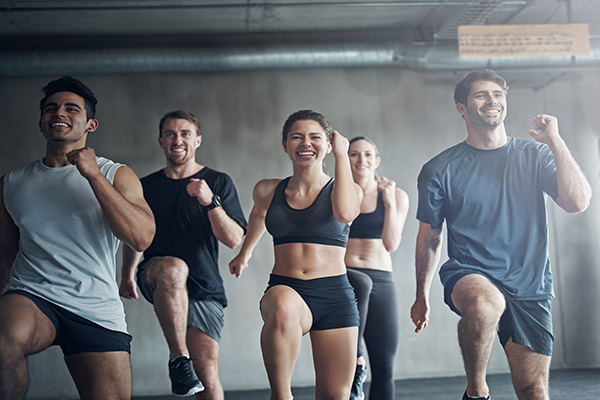The link between sports practice and working memory has captured the attention of researchers in recent years. Working memory is crucial for cognitive performance, and the latest research suggests that athletes may have an advantage over non-athletes. This article explores a recent study published in the journal Memory that compares working memory performance between athletes and non-athletes, revealing important findings.
Elite sports performance depends not only on physical and technical abilities, but also on cognitive functions. The interaction between sport and cognition is evident in the mental challenges faced by athletes, which in turn causes changes in the brain. Physical exercise improves cognitive functions through processes such as the creation of new blood vessels and neurons, which is crucial for brain plasticity. In contrast, a sedentary lifestyle can decrease cognitive performance, even affecting gene expression. Therefore, it is essential to reduce sedentary lifestyles and incorporate regular exercise to improve mental health.
Working memory and sport
Working memory refers to the ability to mentally retain and manipulate information, functioning as a short-term storage system with limited capacity. It is fundamental in sport, as it allows athletes to make quick, strategic decisions in real time. Although athletes often show advantages in sport-related working memory tasks, they do not always outperform non-athletes in general memory tasks such as remembering numerical sequences or verbal information.
On the other hand, there are studies suggesting that athletes are better than non-athletes on general working memory tasks, suggesting that sport experience may have a positive link to cognitive function. But do athletes really have an advantage in this area over non-athletes?
Comparative analysis of working memory
In the study entitled “Comparison of working memory performance in athlete and non-athletes: a meta-analysis of behavioural studies”, a comparative analysis of workingmemoryperformance between athletes in sports such as basketball, soccer and fencing and non-athletes (some of them sedentary) is carried out. For this purpose, a bibliographic search was carried out in which 21 studies with a total of 1455 participants were analyzed.

Relevant findings
It was found that, in general, athletes showed a slight advantage in working memory over non-athletes. This finding was consistent across different types of sports and performance levels. However, the advantage of athletes was more significant when compared to sedentary individuals. Here, the difference was remarkable, suggesting that an active lifestyle and participation in sports may have a positive impact on working memory. This finding underscores the importance of physical activity not only for physical health, but also for cognitive well-being.
The study also found that there are different factors that could moderate this relationship. For example, the type of sport played (such as basketball, soccer or fencing) and the level of skill (elite vs. non-elite) could influence the degree of cognitive advantage observed. In addition, it was observed that sports requiring a high level of interaction and dynamic information processing, such as team sports, might offer greater benefits for working memory.
Final implications
Despite these findings, the study acknowledges that the working memory advantage does not always translate into superiority in general cognitive tasks unrelated to sports. This suggests that, although sport experience may improve certain cognitive functions, its impact may be limited to specific sport-related contexts.
In conclusion, this meta-analysis provides evidence that athletes may have an advantage in working memory, especially compared to sedentary individuals. However, the relationship between sport and cognition is complex and influenced by multiple factors. For students and professionals in the field of sport, these findings highlight the importance of considering both physical and cognitive aspects in the training and development of athletes. Furthermore, they reinforce the need to promote active lifestyles to improve not only athletic performance, but also overall mental and cognitive health.
Study with us
Are you passionate about sports and want to take your career to the next level? The Master in Physical Activity: Sports Training and Management is the key to understanding and improving sport performance from a holistic perspective. In a world where sporting success depends not only on physical ability, but also on mental toughness, this master’s degree offers you the tools you need to excel in the competitive field of sport.
Don’t miss the opportunity to become a sports specialist. Enroll in this master’s degree and take the next step towards a successful and rewarding career – your future in sports starts here!

